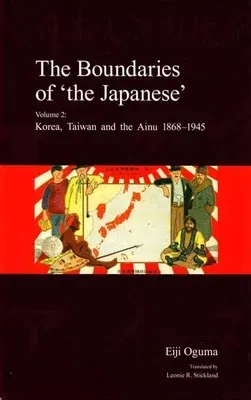Eiji Oguma
(Author)The Boundaries of 'The Japanese': Volume 2: Korea, Taiwan and the Ainu 1868-1945Hardcover, 17 April 2017

Qty
1
Turbo
Ships in 2 - 3 days
In Stock
Free Delivery
Cash on Delivery
15 Days
Free Returns
Secure Checkout

Part of Series
Japanese Society
Print Length
590 pages
Language
English
Publisher
Trans Pacific Press
Date Published
17 Apr 2017
ISBN-10
1925608956
ISBN-13
9781925608953
Description
Product Details
Author:
Book Format:
Hardcover
Country of Origin:
US
Date Published:
17 April 2017
Dimensions:
21.84 x
13.97 x
4.06 cm
Genre:
Southeast Asian
ISBN-10:
1925608956
ISBN-13:
9781925608953
Language:
English
Pages:
590
Publisher:
Series:
Weight:
997.9 gm